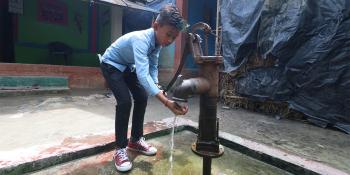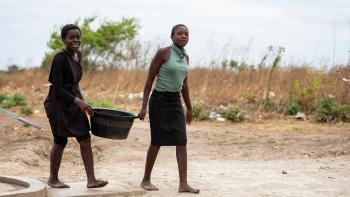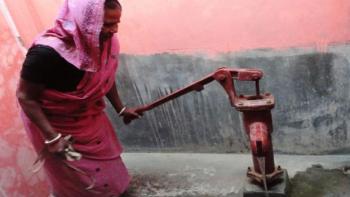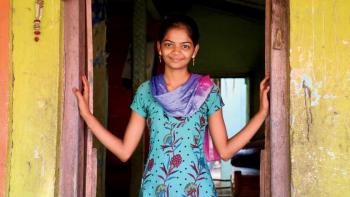
Together , we build urban access to water
Habitat for Humanity sees a critical global need: too many communities live without access to water, sanitation and hygiene, called WASH. In Asia and the Pacific, an estimated 500 million people do not have access to a basic water supply, according to data from World Health Organization and UNICEF. Climate change, population increase, and urbanization — the drivers of water scarcity in the region — also contribute to the escalating Asia-Pacific housing crisis.
Adequate housing requires safe and reliable access to water. We work with families and communities to create affordable, innovative water solutions based on their needs and the local context. Through such inclusive solutions, we improve lives, advance health outcomes, women’s empowerment, economic growth, education and community resilience.
On May 27-30, 2025, Habitat for Humanity showcases holistic solutions for both urban and rural settings at the ADB Water and Urban Forum 2025.
Sign up for free!
We work in more than a dozen countries in Asia-Pacific. Get exciting updates and stories in a snappy newsletter each month. You can unsubscribe whenever you want.
Water solutions
-
In Bangladesh, coastal communities in southern Noakhali district are exposed to high levels of arsenic that contaminated many of their hand tube wells. They urgently need safe water sources to combat chronic arsenic exposure and frequent water-borne diseases that threaten public health and well-being.
Recognizing the threats to families’ health, Habitat for Humanity Bangladesh installed deep bore well hand pumps in communities where arsenic abounds, utilizing deep aquifers free from the poisonous material. Habitat also provided piped and pumped water supply and installed rainwater harvesting systems to ensure households have safe, alternative water sources.
-
In the east of Nepal, communities in Biratnagar city use shallow tube wells from which they get their water for drinking, cooking, cleaning and hygiene needs. These wells are susceptible to bacterial contamination that could cause vomiting, diarrhea, hypervolemia and even death.
To ensure drinking water is free from bacteriological contaminants, Habitat for Humanity Nepal provides households with biosand filters which effectively remove sediments and pathogens such as bacteria and viruses. The filters are easy to maintain and cost-effective.
-
In Indonesia, communities in Gunungkidul regency, Yogyakarta, are drought-prone and face water stress due to climate change and increasing water demands. Habitat for Humanity Indonesia works with these local communities through the use of gravity-fed and pump-based systems, sourcing water from springs, rivers, or groundwater to deliver safe water direct to families’ homes.
In addition, Habitat installed soap pits and planted trees to ensure groundwater can be recharged. The piped water supply to households has ensured water security in water-stressed areas.
-
In Fiji’s Togobula village, Nadroga, people faced the burden of carting water from neighboring communities. Attempts at finding lasting solutions, including wells and a borehole system, were unsuccessful due to the water-scarce village’s location and poor water management. The fuel cost to keep a borehole system running was too high to be sustainable.
Habitat for Humanity Fiji replaced the existing system with a solar-powered submersible pump and installed two 10,000-liter tanks to enhance secondary water storage. The tanks were strategically placed to optimize water pressure and ensure a steady flow. The community is empowered to operate and maintain the infrastructure through training.
-
Access to clean and reliable water in Samoa is unstable due to its geography, climate, and infrastructure. The Pacific Island country is vulnerable to cyclones, floods, and droughts. These disasters damage water infrastructure, disrupting supply or causing a shortage and contamination of water, particularly in rural and coastal areas. Climate change further intensifies these extreme weather events.
To address these challenges, Habitat for Humanity New Zealand and its partner ADRA Samoa support communities to install rainwater harvesting systems and water tanks. Through plumbing training, women are able to maintain and repair their own household water supplies.
Read it first!
Habitat for Humanity will soon be launching a new report on the link between housing, health and women. Watch this space.
In the meantime, read an earlier report launched under our Home Equals advocacy campaign.


